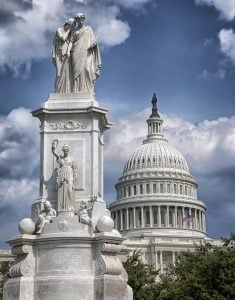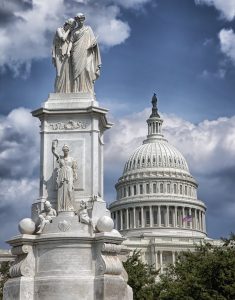
7 Federal and State Regulations Business Owners Need To Watch In 2020
Published on February 04, 2020
 2020 should be a relatively quiet tax year. While we’ll certainly hear debates over taxes as the election nears, changes to tax law are likely to be few. There are regulatory changes that will impact businesses in 2020, however. The top 7 are detailed below.
2020 should be a relatively quiet tax year. While we’ll certainly hear debates over taxes as the election nears, changes to tax law are likely to be few. There are regulatory changes that will impact businesses in 2020, however. The top 7 are detailed below.
- Federal withholding/Form W-4
The Tax Cuts and Jobs Act of 2017 revised the federal withholding process, creating a brand-new Form W-4 for use in 2020. Now that the new federal form and revised withholding tables are available, individual states must determine if they will update their systems based on the federal changes, keep their current process, or develop a new withholding process. The vast majority still have yet to make a decision. - Final Overtime Rule
In September of 2019, the Department of Labor (DOL) announced its long-awaited Final Overtime Rule to revise the federal regulations governing which employees are entitled to minimum wage and overtime pay under the federal wage and hour law. The Rule raises the “standard salary” for the executive, administrative, and professional white-collar exemptions from the currently enforced level of $455 to $684 per week (equivalent to $35,568 per year for a full-year worker), effective Jan. 1, 2020. The new rule also allows employers to use non-discretionary bonuses and certain incentive payments (including commissions) that are paid at least annually to satisfy up to 10 percent of the standard salary level, in a 52-week period. - Worker classification
Currently, this only impacts those with businesses in California, but worker classification may soon reach courts and local and state legislatures across the country.California’s AB5, effective Jan. 1, 2020, requires employers to demonstrate a worker satisfies a three-part (ABC) test to be classified as an independent contractor in the state. Other state and local legislatures are considering similar legislation as hiring freelancers continues to increase in popularity.
The federal government is taking the issue on, too. Remember that the IRS recently introduced the Gig Economy Tax Center this year to assist freelancers in meeting their tax obligations.
- Privacy
As more and more employers use biometrics to identify employees and track hours worked, they need to be mindful of how they collect and use that information and how they adhere to state regulations regarding employee privacy. In addition, depending on the state, clients have the right to opt-out of the sale of their personal information, and businesses need to maintain the same level of service and pricing for those who do. - Health Care Reform
Despite the change in presidential administrations and the removal of the federal penalty under the individual mandate of Obamacare, many regulations still exist under the current administration.For example, changes have been made to Association Health Plans (AHPs), Short-Term Limited Duration Insurance (STLDI), and Individual Contribution Health Reimbursement Accounts (ICHRAs). Employers might also have some new alternatives and new obligations in the form of state individual mandates when it comes to employees’ healthcare options.
State and federal elections in 2020 have the potential to significantly alter health care. Be sure to keep your eye on this one.
- Employer Shared Responsibility Enforcement
The IRS continues to expand and refine its enforcement of the Employer Shared Responsibility (ESR) provisions.In addition to the IRS 226J letters, which include the preliminary calculations for ESR payments for not offering adequate affordable insurance to full-time employees, the IRS has begun assessing penalties for untimely or non-filing of the information returns 1094-C/1095-C. The good-faith-effort relief for filing inaccurate or incomplete returns was extended recently, but this relief did not apply if the returns were not filed timely. Penalties can be substantial.
- Paid Family Leave and Paid Sick Leave
Many state and local jurisdictions implemented paid sick leave laws, and eight states and Washington, D.C. passed legislation to create paid family and medical leave programs that provide eligible employees with benefits when taking leave to care for themselves or a covered family member. A chart of local and state laws exists here.Bipartisan interest in paid family leave law at the federal level also exists, so we could see some discussion here as the election season ramps up.
A quiet tax year doesn’t mean we can take our eyes off the ball. Regulations exist for businesses and could change far more quickly than tax laws. Continue to check in on our blog, and sign up for email updates to receive breaking news and information.






